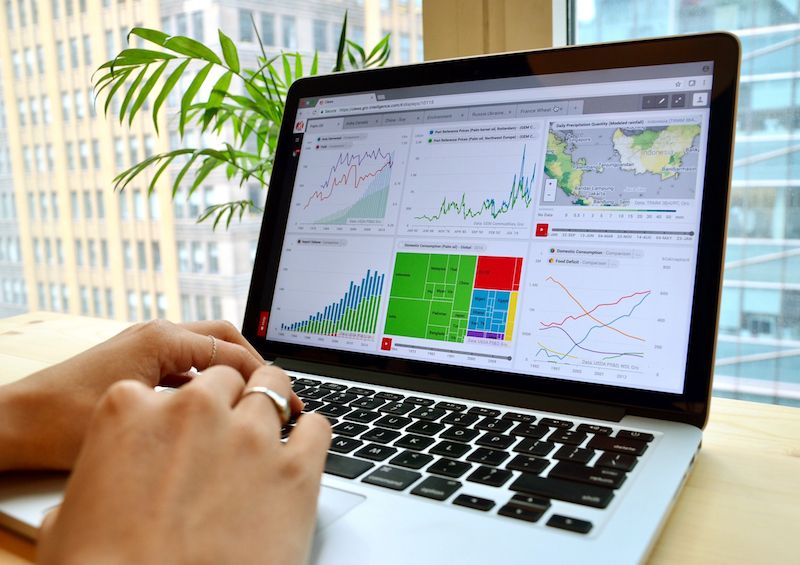Nairobi and New York-based agricultural data startup Gro Intelligence has raised an undisclosed Series A round led by TPG Growth, an arm of the $70 billion global private investment house TPG, with Palo Alto VC Data Collective and family offices also participating.
All previous fundraising since the company’s founding in 2014 has come from family offices in and out of the United States.
Gro Intelligence has built a data product that provides global agricultural data analysis and intelligence on what CEO Sara Menker says is an unprecedented scale.
In order to create a complete collection of crop production, consumption, weather, infrastructure, prices, and trade data, as well as socio-economic and environmental indicators, Gro Intelligence handles hundreds of trillions of data points scraped and collected from governments, trade organizations, good government organizations, weather and geological agencies, commodities and financial markets and more.
According to Menker, the essential vetting and organizing of all of this data are entirely automated. The key to the whole operation is Gro Intelligence’s ontology – the system of organization and language the company has developed to manage all of the disparate data source it collects to provide analysis for agricultural traders, investors, and risk managers.
“We had to develop a new classification system that allows us to redefine all the parameters that are reported by different sources into a common language so they can be indexed and searched… We have eight million data series. It’s a dictionary with eight million terms related to ag,” said Menker, who credits the plant science and agricultural experts on her team with developing this system. Menker herself is a former agricultural commodities trader for Morgan Stanley.
“Sara and her team are using hardcore machine learning and analytics across a massive data set to disrupt the ag intelligence vertical. Their ETL (extract, transform, load) is topnotch, and Gro’s unprecedented access to and ability to apply such a diverse array of data inputs creates an eminently defensible business model,” Zachary Bogue of big data-focused VC Data Collective told AgFunderNews.
According to Menker, her platform can digest multiple data points around the same concept, for example, soy bean yields for a particular year, and assess which of many values is the most likely to be accurate. As new material is added, the system continuously runs quality detection protocols on the new and historical data.
“When you’re looking at supply side numbers, if a country says their production dropped, but all the signals indicate that the crop looked healthy, we’ll make corrections ourselves and notify the sources,” said Menker, who added that many governments have been both responsive and appreciative when Gro Intelligence alerts them of a problem in their data.
Though the company does not release customer numbers, Menker said they range from agricultural lending institutions, international investment banks, insurers, very large growers, food and beverage companies, top consulting firms, and universities including Wageningen University, the world’s top agriculture university, along with Columbia University, and Harvard.
Gro Intelligence currently has 40 team members split between the company’s offices in New York and Nairobi, Kenya. Employees include domain experts, plant scientists, geospatial analysts, market analysts, and engineers. The new funds will go toward further building the team.
One of Menker’s hopes is that affordable data will allow crop insurers, banks and other elements of agricultural infrastructure to become more active in agriculture in Africa.
“For us, it’s really about decentralizing power. One of the biggest issues in global ag markets is because very high-quality data and the amount that you need is so difficult to access, very few people actually have it,” said Menker, who was born in Ethiopia.
“Our theory is that unless you can get the system above and below the farmer to be more efficient and connected then you can’t solve the bigger issues around productivity.”
TPG Africa managing partner Yemi Lalude told AgFunderNews, “Gro Intelligence is a brilliant example of a business with a good presence across Africa, as well as a strong and extensive global reach: from traders investing in wheat and procurement teams buying sugar to credit institutions lending to soy producers, and policymakers creating strategic plans. Africa is also a key region for Gro’s data analytics efforts given its role as a source of agricultural commodities.”
Elsewhere in agrifood tech, TPG, through TPG Alternative and Renewable Technologies is invested in Inocucor Technologies, a Canadian agricultural products company, and Anuvia Plant Nutrients, a Florida-based plant nutrient company. TPG ART is also invested in Brazilian digital ag platform Solinftec.
Data Collective is invested in a range of agtech startups including indoor vertical farming company Plenty, Zymergen, a startup engineering microbes for use across a range of industries including agriculture, along with software for drones provider DroneDeploy. The firm was also an early investor in farm robotics firm Blue River Technologies, which was recently acquired by John Deere.





